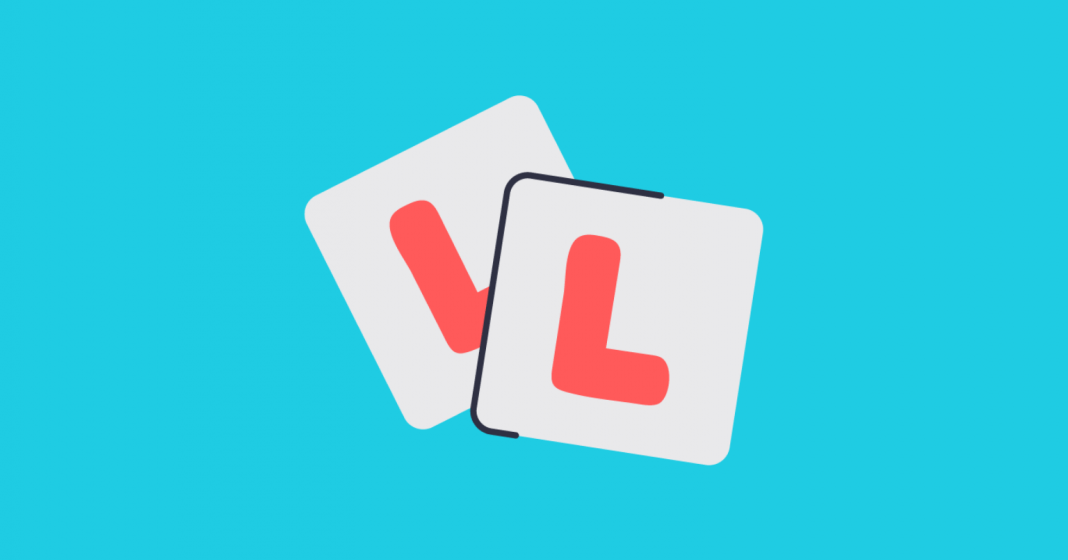Last Updated on November 21, 2023
We know that preparing to get behind the wheel for the first time can be daunting and stressful, so we’ve pulled together 10 essentials to help every learner driver be as well-prepped as possible before hitting the road…
1) Provisional licence
First things first, before hitting the road learners need their provisional driving licence.
A provisional license is a temporary, restricted licence that permits practice with a qualified driving instructor or fully licenced adult.
This is an essential step to acquiring a full driving licence but be sure to check all restrictions before applying for your provisional.
2) Learner driver insurance
Learner driver insurance is a helpful way of letting you get extra driving practice, outside of lessons with a qualified instructor.
The DVSA advises learners to get more experience, such as driving on country roads and in the dark. Learner driver insurance means you can get this crucial know-how.
3) Qualified instructor
A pivotal role in ensuring leaners pass their test is the expert guidance and structured learning that a qualified driving instructor can provide.
With real-time feedback for improvement, confidence building and crisis management skills, a qualified instructor can be the cornerstone of the learning to drive journey.
4) Theory test study materials
Before the practical driving test comes the driving theory test and familiarising yourself with the appropriate materials is crucial.
Study guides, apps and online courses can help learner drivers understand the rules of the road and principals behind safe driving. From traffic signs and general road knowledge to hazard perception, with regular review, learners will be well-prepped for their theory test.
5) Sat Nav
Becoming an integral part of our daily life, sat navs are now being built into vehicles, increasing our dependence on this technology. By learning to drive with a sat nav, learners are better prepared for real-world driving situations and fostering confidence behind the wheel.
Providing real-time navigation assistance, a sat nav can provide learners with valuable traffic updates, making driving more efficient and less stressful and since 2017, sat navs have become a crucial element in practical driving tests in England, Scotland and Wales.
Check out this article where we break down the best sat navs for learner drivers.
6) Emergency kit (first aid supplies, torch, blanket)
Things can happen unexpectedly on the road, and to ensure you’re always prepared for various situations, an emergency kit is a practical, safety-oriented measure preparing learners for unforeseen circumstances, promoting a responsible and organised approach to driving.
Items such as a first aid kit, phone charger, blanket, reflective triangles, torch, jump leads and spare clothes are just a few that can come in handy should learners ever find themselves in an emergency situation.
7) L plates
L plates are a legal requirement for learner drivers when practising outside of lessons. The L plates help signify that a driver is still in their learning phase and alerting others to have extra patience and caution.
By securely displaying L plates on the front and back of the practice vehicle, learners are taking part in a safety measure that contributes to smooth traffic flow and helps other drivers anticipate and accommodate novices on the road.
8) Practice vehicle
Great for applying and honing your driving skills to gain more hands-on experience outside of lesson time, a practice vehicle lets learner drivers put theory into practice and go above and beyond in their journey towards becoming a skilled driver.
Confidence is crucial for safe driving and practicing in a dedicated vehicle allows learners to familiarise themselves with the car’s controls and operate it confidently alongside more skill application and traffic interaction.
9) Basic car maintenance knowledge
Understanding the fundamentals of a vehicle is so important when learning to drive to ensure a vehicle is kept in a safe and roadworthy condition.
By understanding warning signs of potential issues within the vehicle, learners are able to better understand the car and are attuned to its changes. Knowing that the vehicle is well-maintained allows drivers to feel more confident, enhancing the overall driving experience for learners.
10) Patience
Learning to drive doesn’t happen overnight and each driver will progress at a different pace, so having patience in their skill set is pivotal in order to cope with the learning curve.
Patience in driving comes in many forms, from dealing with traffic to understanding road etiquette. Safe driving habits take time to develop, and patience helps learners stay calm in stressful situations, making it easier to make sound decisions on the road.
Conclusion
So, if you’re a learner driver wondering what the essentials are, remember you must have insurance before you get behind the wheel outside of your driving lessons. With Collingwood Learner Driver Insurance, you can focus on perfecting your skills and passing your driving test.
There are so many tips and tricks for new learner drivers, but these essentials will have you ready for your theory and practical test in no time! After all, the more practice you can get on the road, the easier you should find your test!









